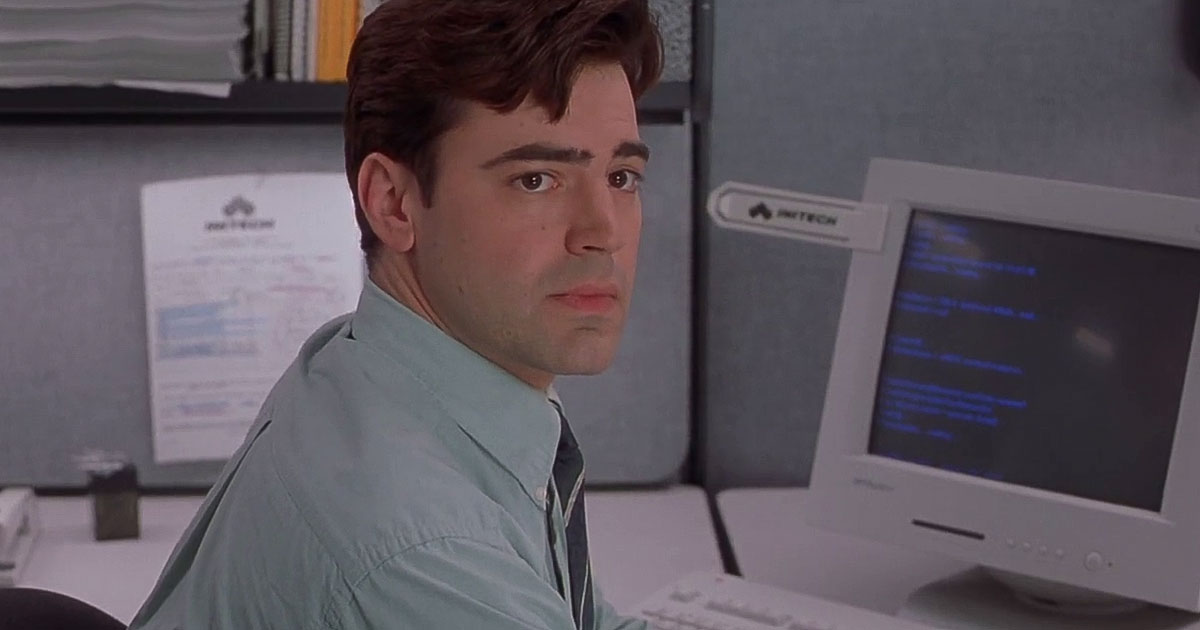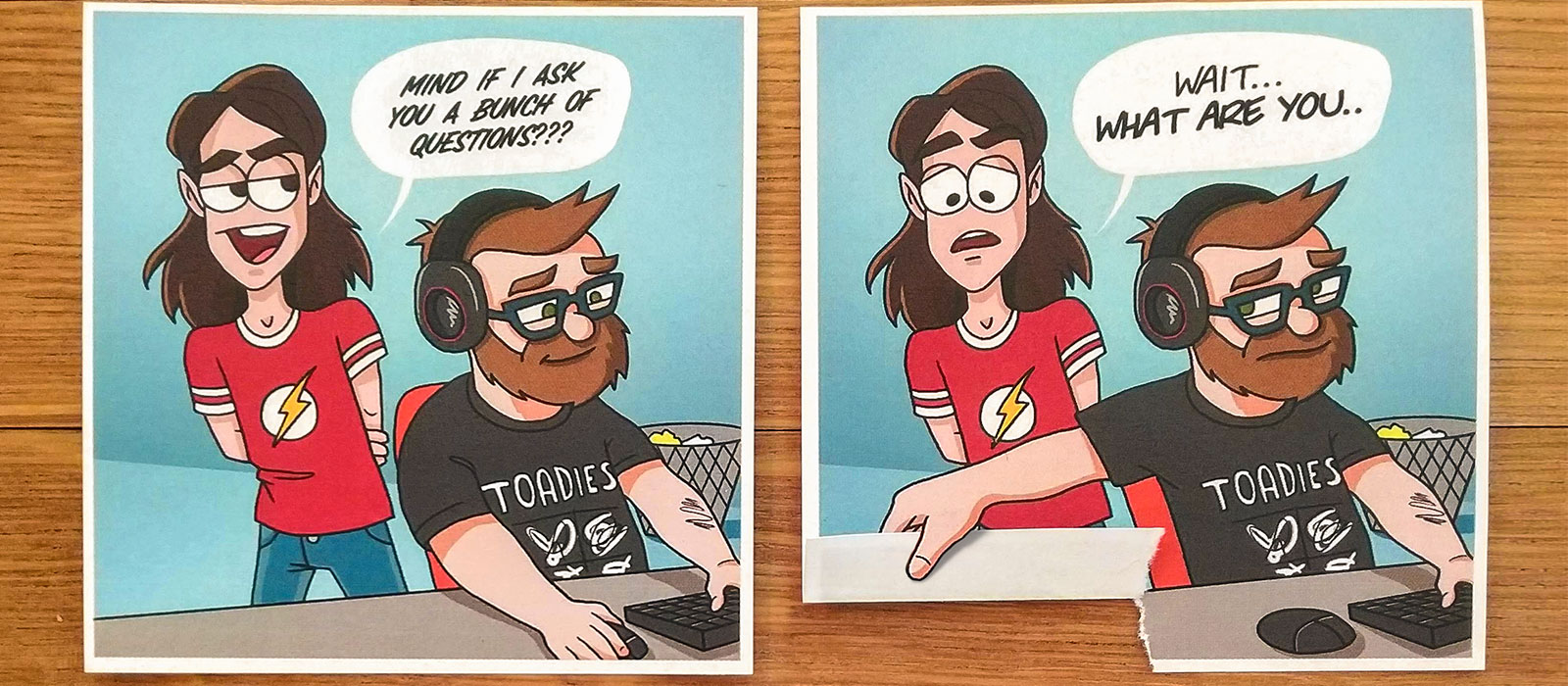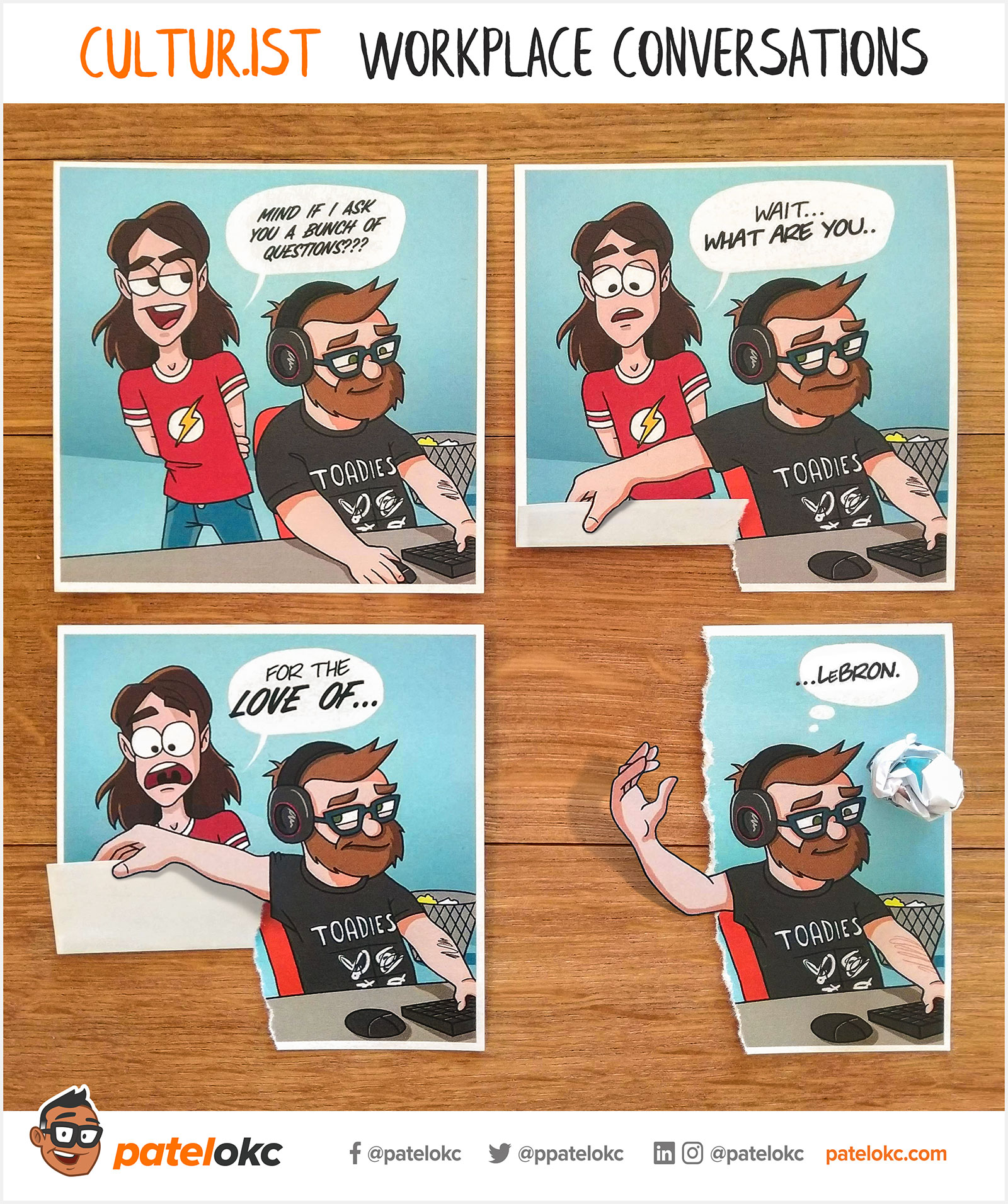Stop talking and go away.
We’ve all had days where we’re not 100%. We don’t want to be bothered. It’s not a sense of lost passion, it’s just an off day.
Then, there are the people who are like that all day, every day. Like clockwork, they arrive at the office at 8:59, do their work in silence and then head out the door as the clock strikes 5. They’d be perfectly happy if they never had to talk to anyone the entire day.
With a few rare exceptions that’s not how businesses operate. In today’s companies, there are a lot of interactions that must take place. That’s how teams of talented people can do more together than they could ever hope to do individually. Being able to interact with the people you work with is how your company will become greater than the sum of its parts.
Anyone can cope with coworkers long enough to make it through the workday. Every day they do, your company’s potential growth sinks a little further.
When expectations don’t match
Why should your employees try to reach their potential when the bare minimum is enough?
You can rephrase that from your unmotivated employee’s perspective as, “What’s in it for me?”
From your perspective as a leader, I’m sure you can come up with a few answers to this simple yet powerful question. There’s plenty to pick from: Being a part of something bigger, all the great perks you give your people, their benefits and, of course, their paycheck.
Research from a team at Northwestern University found, “that a real culture of integrity — as perceived by employees — adds value to a company.”
The key qualifier is important: Perceived by employees.
As leaders, it’s easy to get disconnected from reality. A lack of motivation in your employees is a good indicator that your people don’t see things the same way you do. This mismatched expectation between leadership and their employees is partially to blame a believed sense of entitlement from millennials.
The key ingredient for employee engagement
“What’s in it for me?” isn’t question born from greed or entitlement. It’s the same basic question everyone asks themselves. It’s what drives us all to get out of bed in the morning.
Human nature is ingrained in us the need to look out for ourselves first. We all put our own basic needs first. The need to eat, drink and put a roof over our heads. For your employees, these basic needs are covered with their paycheck and traditional benefits.
Here’s the kicker: Every company offers their employees a paycheck and benefits. Few companies go above and beyond to offer their people something more.
Employee engagement directly ties to how much belonging, affirmation, and meaning (BAM) your people feel at work. When you stop at giving your people the bottom two layers of Maslow’s hierarchy, you’re providing them with the bare minimum. So, that’s what you’ll get from them in return.
Learn more about motivating with BAM
Why your culture doesn’t stop at the office
On December 19, 2017, the UConn women’s basketball team beat the Oklahoma Sooners by a score of 88-64. That marked the 1,000th win for their head coach, Geno Auriemma. What’s amazing is that he reached that mark after coaching just 1,135 games — a streak that included setting the record for any college sport in history at 111 straight wins across multiple years.
One of the keys to UConn’s incredible success is their team chemistry. To help build that, Coach Auriemma understands his players need to spend time with each other off the court.
UConn’s not unique in that approach. Professional teams do it, too.

At the end of the work day, how often do your people try to hang out with each other? Do they go their separate ways, or do they genuinely enjoy being around each other?
As a leader, look for opportunities to get your people interacting with each other outside of the office walls. Grab a beer at the local pub, host dinner at your home for your team, or solve a puzzle together in an escape room.
Don’t forget your remote employees. The fastest way to hurt morale and alienate your remote people is to exclude them in your team-building activities.
Shared experiences are a great way to build a sense of belonging for your tribe. They’re a bedrock for conversations and memories that can be referenced back at the office later.
When you build relationships that go beyond the paycheck, you’re not going to finish a project because you have to do it — you’re going to get it done because you told your friend you were going to. It’s a personal commitment. Someone you care about is relying on you to get it done, so you’ll follow through.
Engagement is the byproduct of meaningful work

No one likes staring at a screen for no reason. Give your people meaning behind their work.
A great way to help your people feel BAM is to help them see how what they’re doing fits into the bigger piece of the puzzle. Too many companies try offering clarity but only manage to make things as clear as mud.
Spending an hour of the company town hall explaining how the company’s donating time and money to a charity doesn’t offer meaning. Charities are great, but how does a salesperson going from town hall to a staff meeting tie that into the charity?
How does spending all afternoon in meetings help a good cause?
Team leaders should proactively look for ways to give meaning to their team. Look for ways to connect the projects they’re tackling to the bigger picture. Encourage sharing positive customer feedback to help shine a light on how your team’s work has helped make someone else’s day a little brighter.
The more BAM your employees feel with their coworkers, the less coming into the office will seem like work. That’s when you stop going to work to push buttons. It’s something more than that. You’re working with your friends to do something bigger than any of you could do on your own. When you’re giving your employees a job that doesn’t feel like work, but something they love to do — that’s when you’ll see employee engagement skyrocket.




